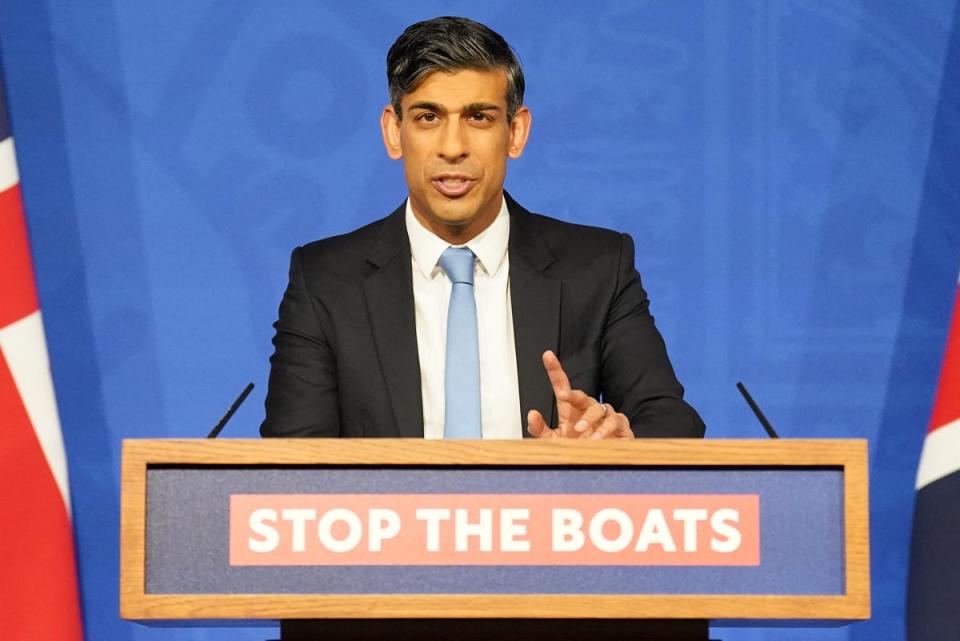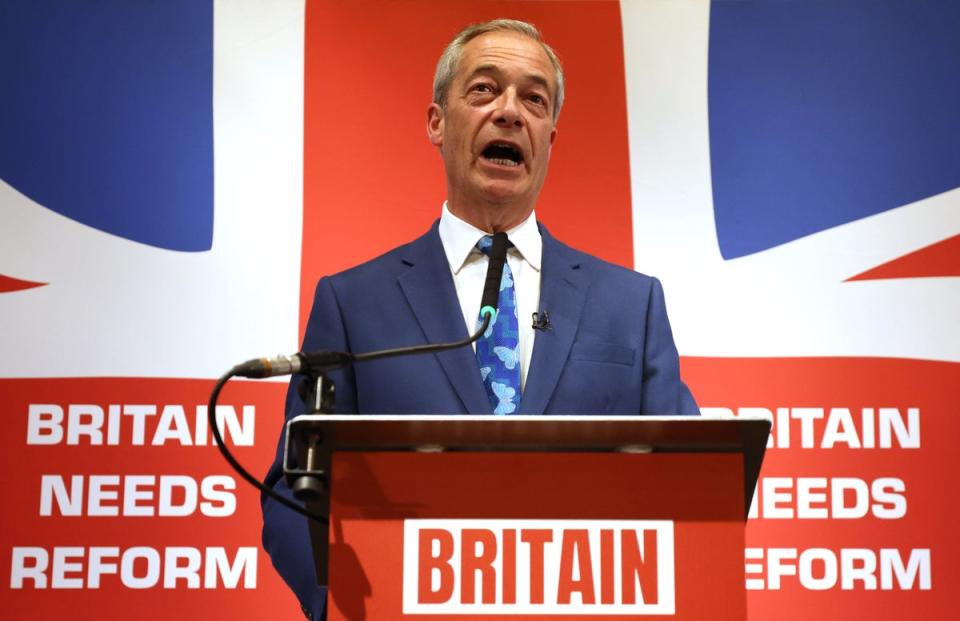Tories vow annual cap on visas in general election pledge to reduce immigration
The Conservative Party has unveiled a new general election pledge to cut immigration by creating a new annual cap on visas – as Rishi Sunak faces an intensified challenge from Nigel Farage’s right-wing party Reform UK.
In a new policy announced hours after Mr Farage stated his intention to stand as a candidate for Clacton, the Tories vowed to put a yearly limit on the number of UK visas issued, a move long demanded by Tory hardliners including the former home secretary Suella Braverman.
With Mr Sunak claiming on Monday night that his was “the only party that is willing take the bold action needed to cut immigration figures”, the Tories vowed to give parliament a direct role in setting levels of migration to Britain.
The plans would see the government ask its Migration Advisory Committee (Mac) to provide a recommendation for level of the annual visa cap, which ministers will then consider before putting the proposals to parliament for a vote.

The committee’s remit “will be explicit that our objective is to get migration down to sustainable levels, for levels to fall year-on-year over the next parliament and that they must consider both the costs and benefits of migration”, the Tories said.
The newly-proposed cap would be imposed on the number of visas that can be granted to those coming to the UK on work or family routes. Temporary work routes, such as seasonal agricultural workers, would not fall within the cap.
Calling the cap “meaningless”, Labour’s shadow home secretary Yvette Cooper accused Mr Sunak of “rehashing failed announcements from David Cameron and Theresa May, while doing nothing to tackle the skills shortages and their failures in the economy and immigration system which have pushed net migration up”.
Ms Cooper added: “Why should anyone take seriously a promise the Tories have already repeatedly broken? Labour’s plan to bring net migration down will link the immigration system with new mandatory training and workforce plans for British workers, and stop rogue employers hiring from abroad.”
Just last month, home secretary James Cleverly tasked Mac with investigating the UK’s graduate visa scheme in response to calls led by Tory MP Robert Jenrick to scrap the route amid claims of “widespread abuse”. The committee found no “significant abuse” and recommended keeping the scheme in place.
Citing provisional figures suggesting net migration fell by 10 per cent last year, largely as a result of fewer people from Ukraine and Hong Kong travelling on humanitarian visas, Mr Sunak said: “We have taken bold action to cut the number of people coming to this country.
“The plan is working but migration levels are still too high, so we are going further. Labour’s migrant amnesty will make the UK a global magnet for illegal immigrants and they have no plan to reduce net migration, while we have a clear plan to stop the boats and put a legal cap on numbers.”

There was no mention of Reform in Mr Sunak’s statement, whose founder Mr Farage declared on Monday afternoon that the 4 July ballot was an “immigration election”, as he revealed he would become the party’s new leader and announced he would make his eighth bid to be an MP.
Mr Farage’s last-minute declaration to stand in Clacton will be of serious concern to Conservatives, who only minutes later on Monday were shown the result of YouGov’s first MRP poll which indicated Labour were on course to win more seats than Tony Blair’s landslide result in 1997 – and the biggest majority ever for Labour.
Only a day earlier, Sir Keir Starmer waded into Tory territory as he vowed to slash “sky high” net migration, which hit 685,000 last year – more than three times higher than the figure at the time of the last election in 2019, when the Tories promised to cut overall numbers in their manifesto.

 Yahoo News
Yahoo News 
